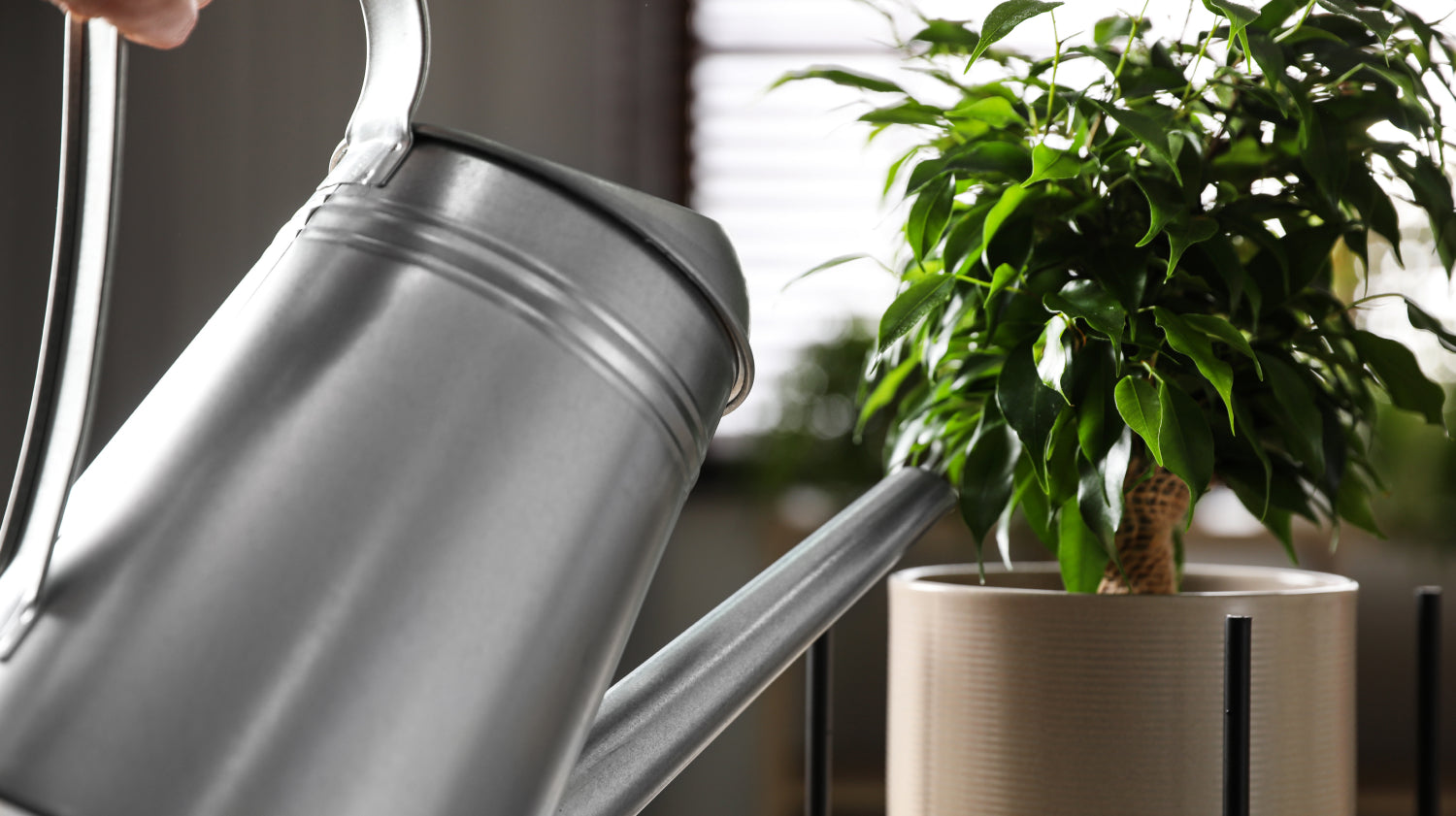Roommates on nerves or if you say drama queen
Meet the DRAMA QUEENS!
Spoiled, fragile, very sensitive (especially to criticism)... these are maids that we would describe as plant "proud princesses" in Czech. You have to deal with them with gloves, otherwise you have a problem - and that those proud princesses can sulk persistently and for a long time! Maybe you have such a princess at home. Just pour in water that hasn't stood for exactly a week and a day or leave the window open a few seconds longer than usual - and lo and behold, Huston, we have a problem. What does the care of noble proud princesses look like, and which maids are most often among them?
The main symptoms of dramatic beauties
So what do these maids have in common, apart from the title of proud princesses? So, for example, they still look sick - they have yellow leaves, they have brown spots on the leaves, they have drooping leaves... the list is long. If such a princess is offended, she will continue to sulk and not grow for a very long time - she will simply not grow and not grow. But the oscar still deserves their dramatic dropping of leaves! In addition, we must not forget that some of them are attractive not only to growers, but also to pests.
Options from re-education to reform
Every grower strives to make his green jungle grow as well as possible. That is why he conscientiously begins to act when he sees the first symptoms:
- Checks watering : "Am I watering too much/not enough?" or "Did I use enough room temperature water?"
- He thinks about the nutrients : "Couldn't I have fertilized it?" or vice versa "Shouldn't I fertilize it a little?"
- Considers the circumstances: "Isn't she too cold/hot ?" "Isn't he pulling at her from the window/door/hallway?" "doesn't dry on the radiator"? Or considering the lighting conditions "Does it have enough light?"
- He is lying in wait for the pest : "Doesn't he happen to have cockroaches?"
The grower considers all the steps, checks the current situation, provides first plant aid, adapts the conditions and waits for the maid to come to her senses. Sometimes it takes a while, but after a month it should be obvious if the procedure was successful. But in the meantime, other troubles appear for the proud princesses or the original one still persists.
It is possible to try to re-educate the maid and simply set the most suitable conditions according to the best knowledge and conscience and wait until she gets used to them. Some maids take longer to adapt, especially those who have experienced various challenges (for example, traveling from another country, a long stay in a store, etc.). You have to be patient and try to keep the plant alive as much as you can and hope - and that's usually enough.
But there are also those, let's say hysterics, with whom even re-education does not work. They are already simply offended and nothing will change their attitude. You can have such a plant at home for half a year or a year and it still angers and provokes you. You know, sometimes we just can't do anything. In such cases, it is advisable to consider a change - especially the owner. Try to offer the plant to someone else, maybe it will be better with them. However, that doesn't mean you can't buy the same maid again once you've had your mind set on it. Practice makes perfect and maybe you'll make friends easier this time!
The most common “PROUD PRINCESSES”

Photo: Small-leaved and minimalistic Sophora prostrata Little Baby
Sophora prostrata
A beautiful, minimalist plant with a delicate to fragile appearance will delight everyone. But beware. Sophora is just one of those oversensitive beauties - and if she doesn't like something, she just falls off. Fortunately, sophora is also relatively tough and has a tendency to regrow. Therefore, when it gets used to you or the cause is removed, the bare twigs will grow back. Also, watch out for unwanted suitors - budgies for whom sophora is like a magnet! We wrote more about sophora in our article.

Photo: Ficus benjamina
Ficus Benjamina
Oh, the Benjaminites. Ficuses with small leaves and thick crowns are very popular in households. But beware, they are very well aware of this and can also torment! Ficuses are very sensitive to temperatures - as soon as they are blown by cold air from the corridor, open window or door, the leaves are down. Again, their leaves can grow back, but this plant is easier to prevent leaf drop. After all, it suits them best as thick trees. You can learn more about ficuses and their ailments in general in our article.

Photo: Nephrolepis house fern
Nephrolepis, or kidney stone
This is probably the most famous type of fern that can be found in households. Their long stems with tiny leaves decorate many a bathroom! And that brings us to the stumbling block - humidity. Ferns generally benefit from a moist environment, which is why they are very happy and happy in bathrooms. Somewhere near the heater, you would quickly realize how unpleasant it is to clean up fallen leaves from this plant. At the same time, however, she also needs some light, she would not like it too much in the dark or in the shade.

Photo: Tradescantia Quadricolor
Tradescantia or water lily
We could often findwater lilies , mayflies or tradescantia in the list for beginners. It is true that this is a relatively unpretentious and fast-growing green happiness. But as their nickname suggests, you have to be careful with the water. Water lilies grow as if from water, and when they do, they need plenty of water. But we must not forget that they are no longer so thirsty, especially in winter. Water lilies often indicate a lack/excess of water by browning the leaves. At the same time, they can also torment us with unsightly vines that reach for the sun from too shady a place. Therefore, think about an adequate drinking regime and enough sunshine - tradescantia will be grateful to you.

Photo: Maranta Fascinator
Calathea or praying mantis in general
We especially like praying mantises for their decorative, multi-colored and patterned leaves. They also fascinate us with their daily routine, when their leaves go to sleep at night. However, when purchasing praying mantises, remember that they are the heart and body of a tropical plant! This means that without sufficient moisture, heat and light, they will not be very happy. The most common ailment is the drying of the tips of the leaves, which is a real beauty flaw. If you do not have the plant near a source of dry heat (e.g. heating), you have adequate watering and enough light, and yet the leaves are drying, the last option is to purchase an air humidifier. Dew really won't save you here. However, if you are not completely picky and miss a dry patch here and there, you can get along well with praying mantises in this way as well. We describe more about praying mantises in our article .

Photo:
Alocasia
Another group of proud princesses are the Alocasias . Majestic, large and tall leaves of various colors and patterns attract many a grower. However, we have already seen alocasia, so most of the growers know that these are plants for the more experienced. These are again tropical beauties that are picky about watering and humidity as well as heat and sunshine. They also usually carefully monitor the number of their leaves and do not like to increase this number - that is why they often replace a new leaf with an old one. This can make some inexperienced growers nervous. With Alocasias, it is so important to think about thorough watering, they need to feel the "moisture" of a tropical home, but if the soil is already wet, they rot and dramatically curl and drop their leaves. Sufficient light and heat are also important for their comfort. We wrote more about Alocasia care in our article.

Photo: Variegated Syngonium Albo variegata "Imperial White"
Variegated plants
Of course, we saved the biggest drama queens for last. And it's none other than the motley maids ! You can do wonders! For example: variegated parts like to dry out and there is no need to be afraid of this, because it is natural, especially for white parts. Then they also like to commit suicide - by starting to grow only variegated until they have nothing to live on and then die. It is then appropriate to cut them. But variegated plants sometimes revert - that's only the peak of their dramatic career. They just start to grow instead of the usual green and full stop. Then we can't avoid radical cuts either. However, in general, variegated plants (mostly depending on the extent of their variegation) are more prone to overflow, drying out at lower humidity and slower growth. We wrote more about variegated plants in our article. We wrote more about variegated plants and their care in our article.
Finally
Drama queens can torment us, some to the point where we consider the meaningfulness of a career as a grower. However, it wouldn't be the same without challenges and carambolas - and even more so, we value those ordinary classics and constants that add stability and an oasis of peace and comfort to our green jungle.
Therefore, if you want to avoid a meeting with a proud plant princess, study the available information about different types of plants, for example on our blog - then you will not be surprised!
M.Sc. Jana Beránková
-
Posted in
Péče o pokojovky, Zajímavosti a tipy





